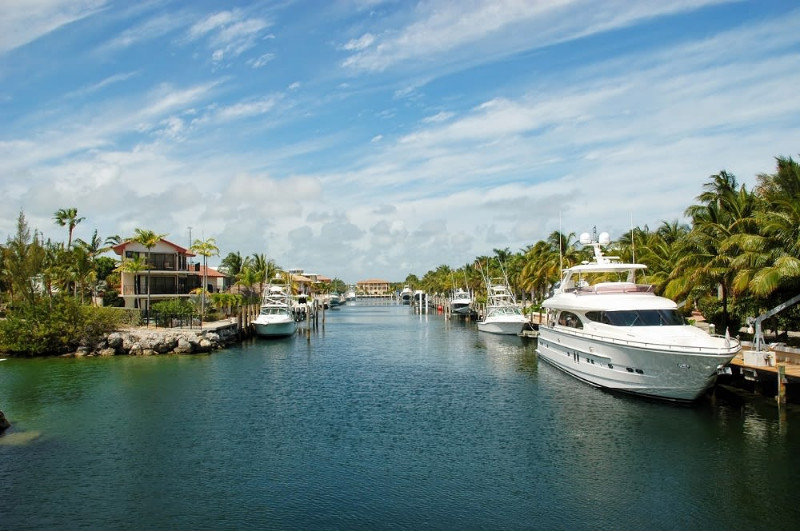The rate of people buying a vacation home has been steadily increasing. Fantastic weather, rising employment prospects, and affordable living conditions have made Tampa Bay real estate some of the hottest properties for investors. Tourism generates significant revenue for Florida, and lodging is another revenue source. But owning property means paying property taxes even if you have more than one property, so it is wise to consider the tax implications before buying a vacation home.
Figure out how you’ll be using your second home
Your vacation home can be a space for you and your family to get away or a potential source of income. You could even decide to make it both. Each decision has its tax implications.
If you own a second home, it is subject to federal, state, and local property taxes. How much of each you pay will depend on several things, including how you plan to use your second home. If it’s a home for personal use, it will be considered a personal residence for tax purposes. But if you plan to rent it out, it will be treated as a rental property for tax purposes. Of course, paying taxes is rarely that simple, and you will also need to consider the number of days you use your vacation home versus the number of days you rent out your home to determine how you will be taxed.
No tax if you rent your vacation home for less than 14 days
If you rent out your home for less than 14 days and use the property for your personal use for more than 14 days, any rental income you earn is tax-free. You won’t pay any federal tax on it. It also means you can’t deduct any expenses on your income tax return you may have generated from renting your home. But you can still claim homeowner deductions like mortgage interest, real estate taxes, and causality losses.

Personal residence versus a rental property
Does your vacation home fall under the personal residence for tax purposes, or will it be classified as a rental property? Your vacation home will be considered your personal residence for tax purposes if you only plan to use it for yourself, your family, and your friends. That doesn’t mean it will be taxed as a rental property if you rent it out for some time.
Suppose you rent your vacation home out for more than 14 days, but you also use it during the year for a period. Provided the time you use the property is more than 14 days or more than 10% of the days you rent your home at the fair market price, it is still considered a personal residence.
Similarly, if you loan out your vacation home in exchange for using the home of another homeowner, it is considered your personal residence even if you rent it out at a fair market price.
Adding more personal use days to the year may increase current itemized deductions for qualified residence interest expenses and property taxes.
Your vacation home is classified as a rental property if it is rented for more than 14 days and provided any personal use doesn’t exceed more than 14 days or 10% of the days you rent the home at a fair market price.
Ultimately how you end up using your vacation home throughout the year can change its tax classification, whether from personal residence status to rental status and vice versa. Of course, if the rental demand is high, you may prefer to make the most of that trend and maximize your income from the property, but it will place you into rental property status.
Make sure you only count the days of the actual rental or personal occupation. You don’t count days when the property is unoccupied or lived in the home for repairs and maintenance.
How many days you have used your vacation home versus how many days you rented it
You can determine the ratio of days you used your vacation home versus how many days you used your vacation home as a rental property by using this formula:
- Total number of days the vacation home was personally used (e.g. 50)
- Total number of days the vacation home was rented (e.g. 100)
- Add up those two total (e.g. 150)
- Divide the number of personal use days by the total to get the ratio for personal use (e.g. 50/150)
- Divide the number of rental days by the total to find the ratio for rental use (e.g. 100/150)
Tax Cuts and Jobs Act

The Tax Cuts and Jobs Act of 2017 updated the tax code and aimed to simplify tax paying for individuals and corporations while living up to its name and cutting taxes for many Americans and businesses. But some changes to deductions could affect your itemized deductions for mortgage interest and property taxes, particularly if you already have a large mortgage on your primary home. It may leave little or no room to deduct mortgage interest or property taxes on your vacation home.
The act reduces the amount on which interest paid can be deducted on your tax form from $1,000,000 to the first $750,000 of home debt for loans taken out after December 15, 2017. For loans taken out before that date, the $1,000,000 prior law still applies.
Itemized deductions for state and local taxes are limited to $10,000 ($5,000 for married filing separately). It applies to income or sales taxes and property taxes and could impact the taxes you pay for owning your vacation home, so you need to consider how and if the changes to tax laws affect your vacation home taxation.
State and local laws
State and local laws for vacation homes vary from state to state. For instance, in Florida, short-term rentals are subject to tax. Hosts must collect applicable short-term rental taxes from guests and pass them on to the required authorities. Failure to comply can result in fines and interest penalties. Short-term rental is considered six months or less. Renting or leasing these properties generally carries a 6% tax on revenue earned.
The McIntosh Group can answer all your questions
For more information on property tax rules that may affect your vacation home, or if you’re looking for Tampa Bay realtors with the expertise to find your ideal vacation home in the Tampa Bay area, contact The McIntosh Group.

